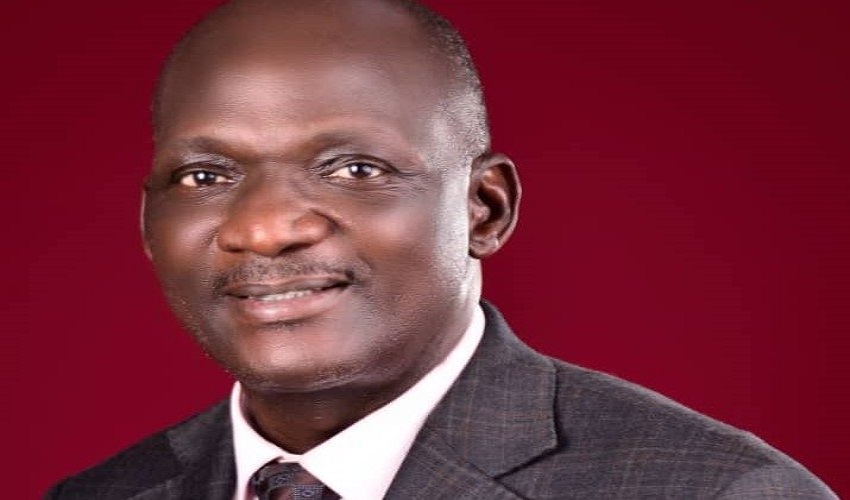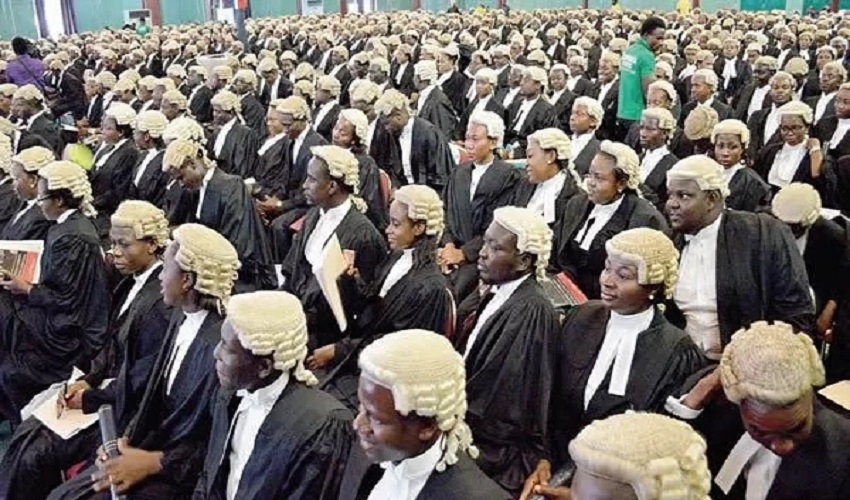ANATHEMA OF ADMINISTRATION OF OATH OF OFFICE TO JUDICIAL OFFICERS BY CHIEF EXECUTIVES
ADMINISTRATION OF OATH OF OFFICE TO JUDICIAL OFFICERS BY CHIEF EXECUTIVES: A SYMBOLIC REPRESENTATION OF JUDICIAL SUBJUGATION
By Jonathan Gunu Taidi, Esq.
There is no gainsaying the fact that the judiciary in Nigeria is in a state of anomie and absolutely unable to operate like an independent arm of government rather than as an appendage of the executive. A plethora of factors account for this sad state of affairs and I am particularly concerned with a certain ceremony which appears innocuous enough but actually illustrates the whole imbalance in the relationship between the executive and the judiciary.
The administration of oath of office to judicial officers by chief executives is manifestly symbolic of the judiciary’s continued subjugation to the executive. We witnessed yet again this anomaly play out when President Buhari administered the judicial oath of office to the new CJN. I mean, if not for anything, the very fact that the heads of courts are customarily ascertained by seniority within the bench, devoid of any executive influence, is enough for the such a ceremony to be done within the judiciary, either by the retiring CJN or a past one. The President has no business administering the judicial oath of office.
In civilized jurisdictions like the United States of America, judicial oaths of office to the Chief Justice is never administered by the President. As a matter of fact, the ceremony has always taken place in that nation’s Supreme Court’s premises. The closest they have come to something like the Nigerian scenario was in 1940 when President Franklin D. Roosevelt invited Frank Murphy to take his Constitutional Oath at the White House. On January 18th, Murphys Constitutional Oath was administered in the Oval Office by Justice Stanley F. Reed as the President looked on. A newspaper covering the event noted at the time that such an occurrence was without precedent. A little more than two weeks later, on February 5, 1940, the Clerk of the Supreme Court administered the Judicial Oath to Murphy in the Courtroom and the new Justice took his seat.
In 1986, President Ronald Reagan revived the practice of holding a Constitutional Oath ceremony at the White House when he hosted a ceremony for Chief Justice-designate William H. Rehnquist and Justice-designate Antonin Scalia. Retiring Chief Justice Warren E. Burger administered the Constitutional Oaths on both after which Rehnquist said, at the conclusion of the second part of the proceedings, that “…in our Court this afternoon, I will become the sixteenth Chief Justice of the United States.”Later that day in a special sitting in the Courtroom, Chief Justice Burger administered the Judicial Oath on Rehnquist. Chief Justice Rehnquist in turn administered the Judicial Oath on Scalia, making Scalia the only Justice to take oaths from two different Chief Justices on the same day.
Subsequently, some oaths have been taken at the White House, or other locations as circumstances may dictate. For example, Stephen G. Breyer, confirmed during the summer of 1994, was vacationing near Chief Justice Rehnquist. Rather than wait to take the oaths, he drove to Rehnquists location in Vermont where the Chief Justice administered them. When all had returned to Washington, D.C., Breyer retook the Constitutional Oath at a White House ceremony and an investiture ceremony was also held at the Supreme Court on September 30, 1994.
The U.S understands the complete and unfettered independence of the judiciary, that is why something as symbolic as oath taking within judiciary is guarded and administered within the court. We cannot as a nation strive to entrench international best practices if we are not serious about imitating same.
Without prejudice to the other factors that contribute to the absence of independence of the judiciary, this is a good point of focus in the effort to vigorously advocate for its independence.
As in all things, we need to do better as a nation if we are serious about making headway. The judiciary is bedeviled with sundry problems right now and we must resolve to do everything possible to restore it to its pristine pedestal.
To join our Telegram platform, please click here
COPYRIGHT 2022 CITY LAWYER. Please send emails to citylawyermag@gmail.com. Join us on Facebook at https://web.facebook.com/City-Lawyer-Magazine-434937936684320 and on TWITTER at https://twitter.com/CityLawyerMag. To ADVERTISE in CITY LAWYER, please email citylawyermag@gmail.com or call 08138380083. All materials available on this Website are protected by copyright, trade mark and other proprietary and intellectual property laws. You may not use any of our intellectual property rights without our express written consent or attribution to www.citylawyermag.com. However, you are permitted to print or save to your individual PC, tablet or storage extracts from this Website for your own personal non-commercial use.

